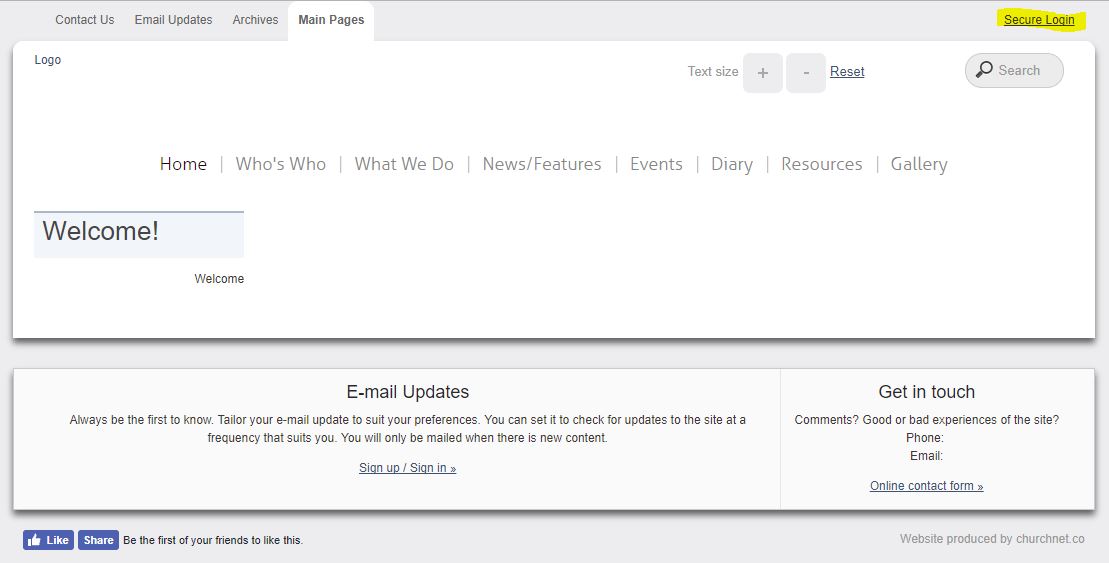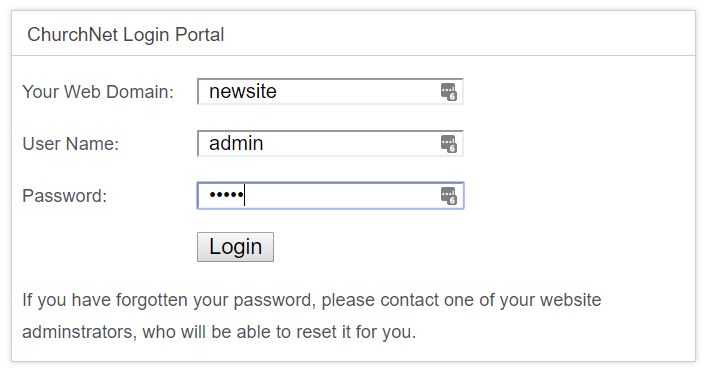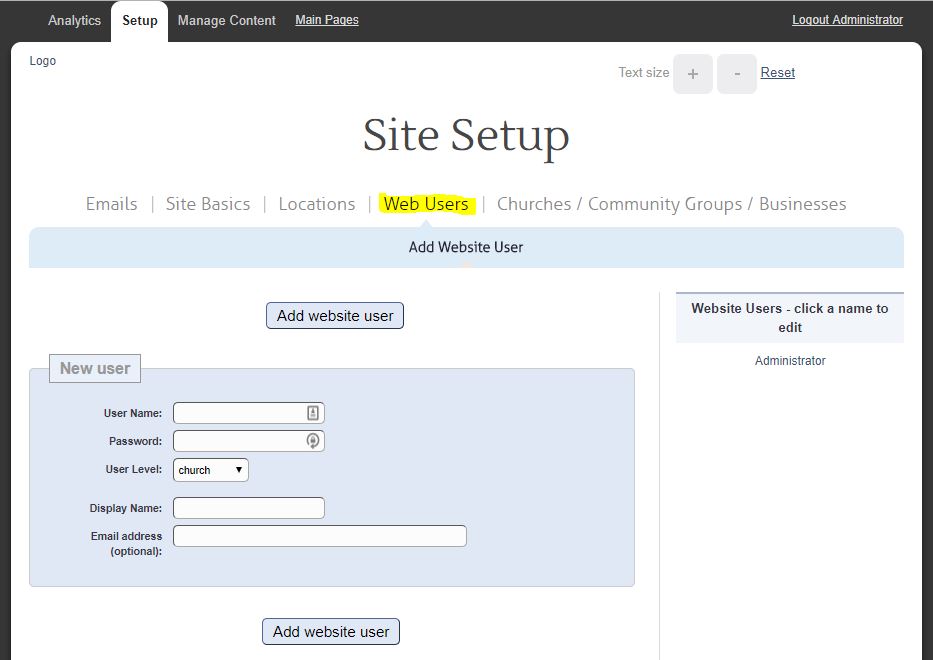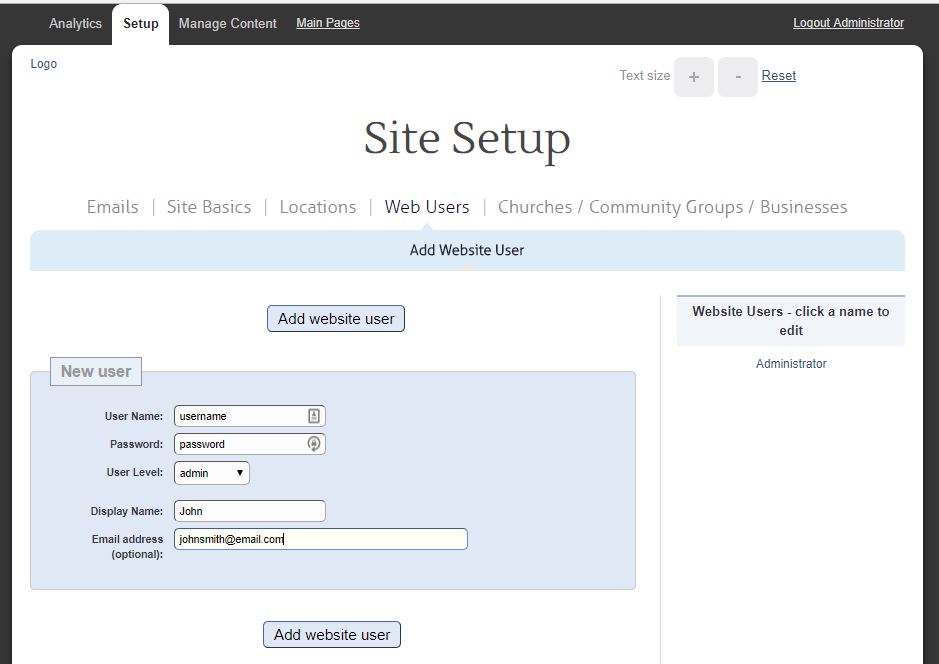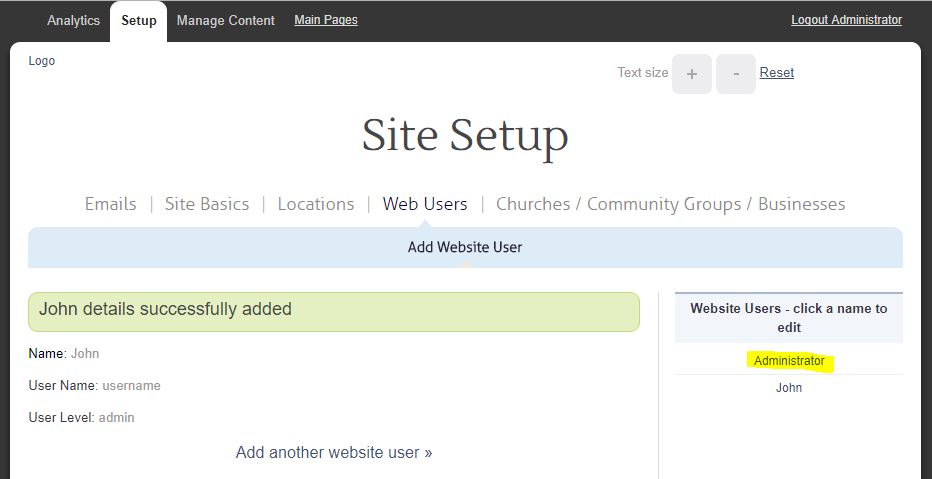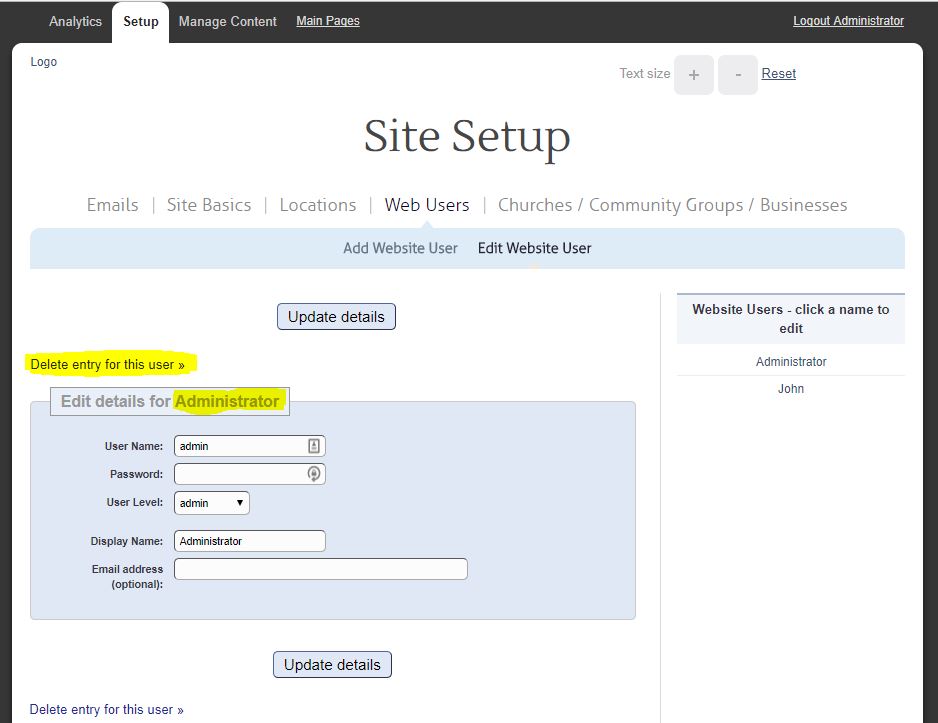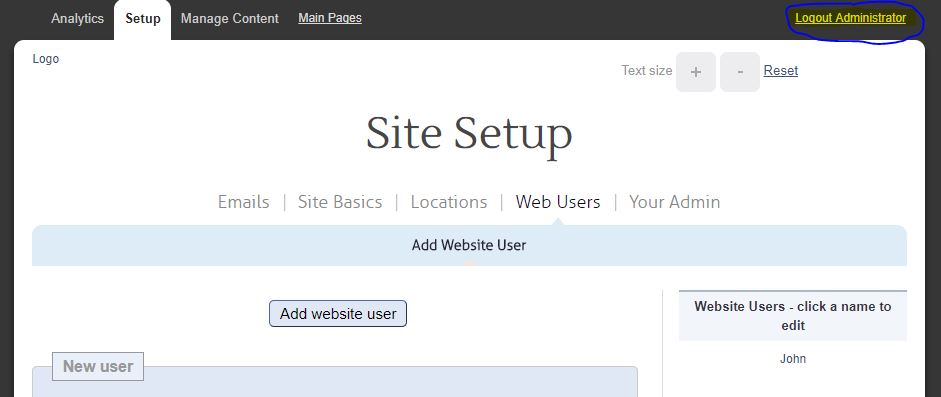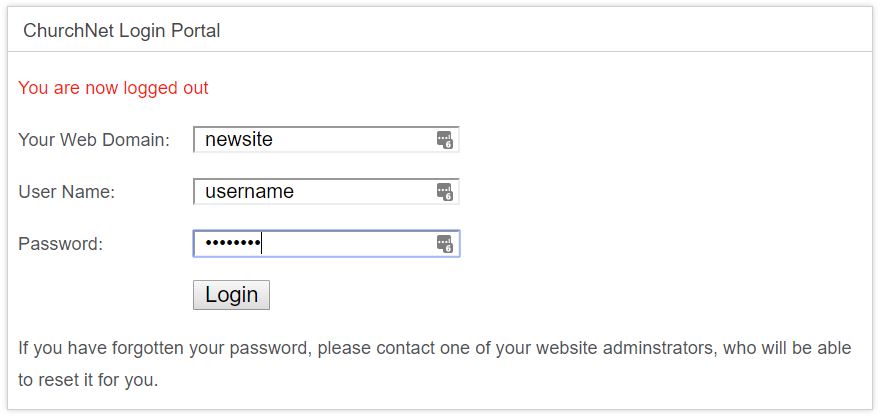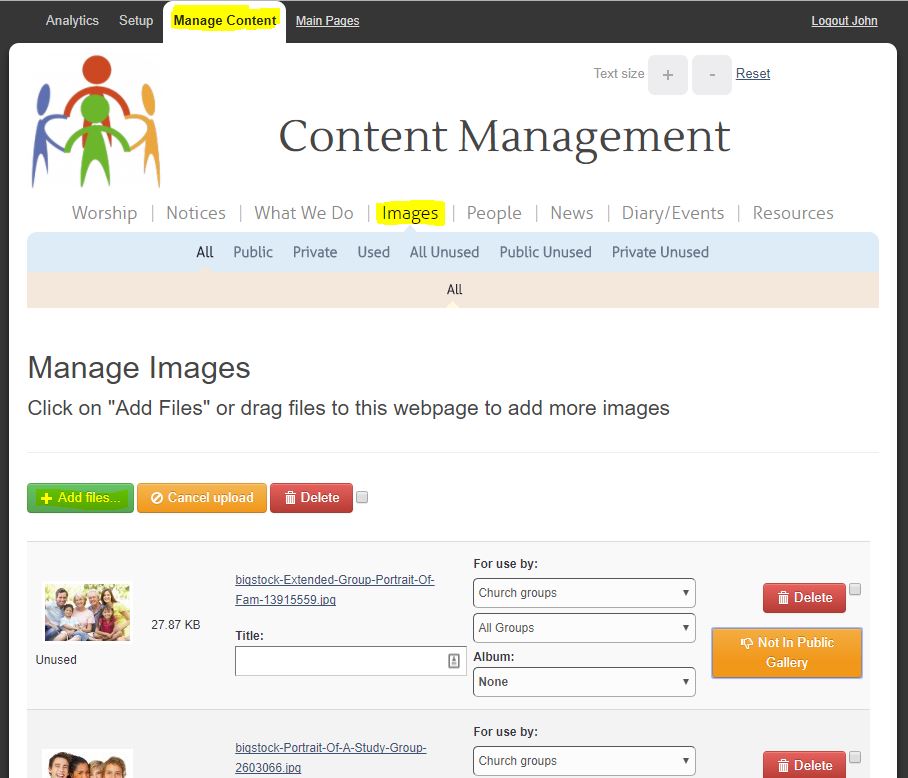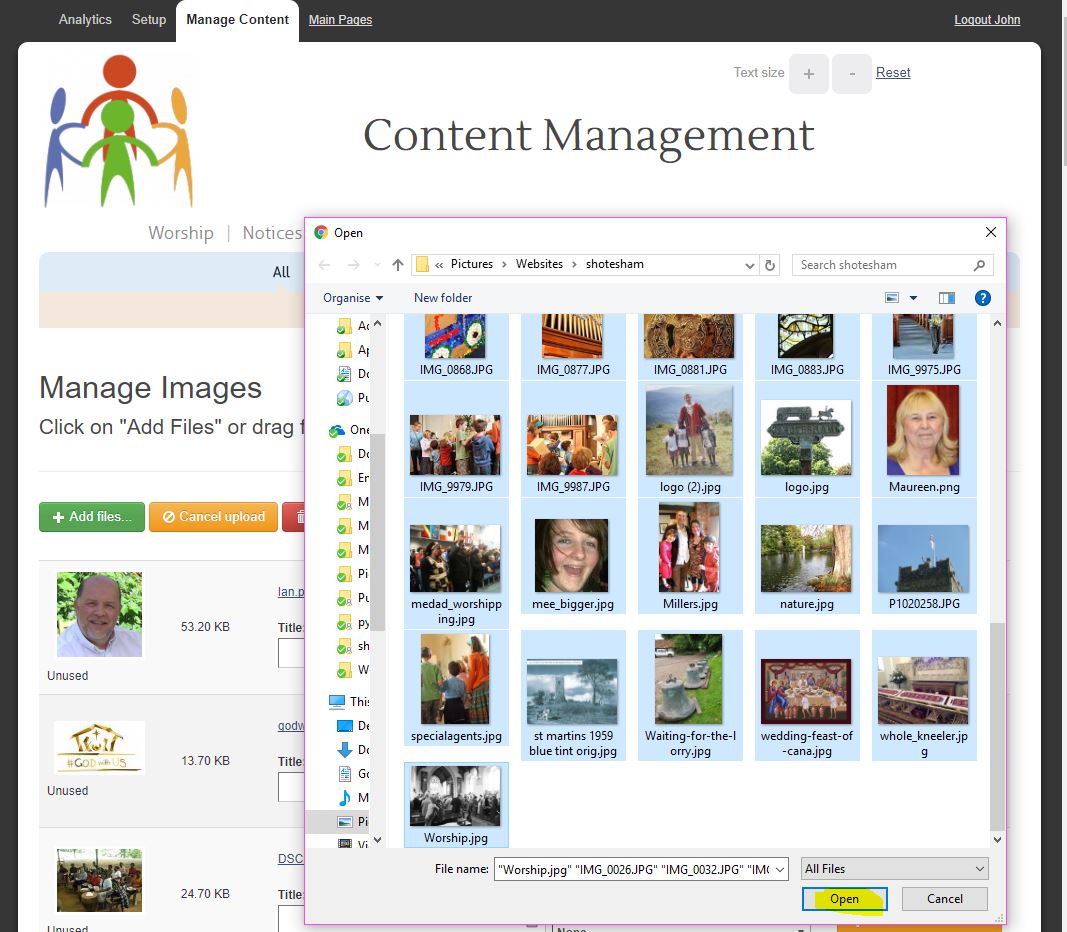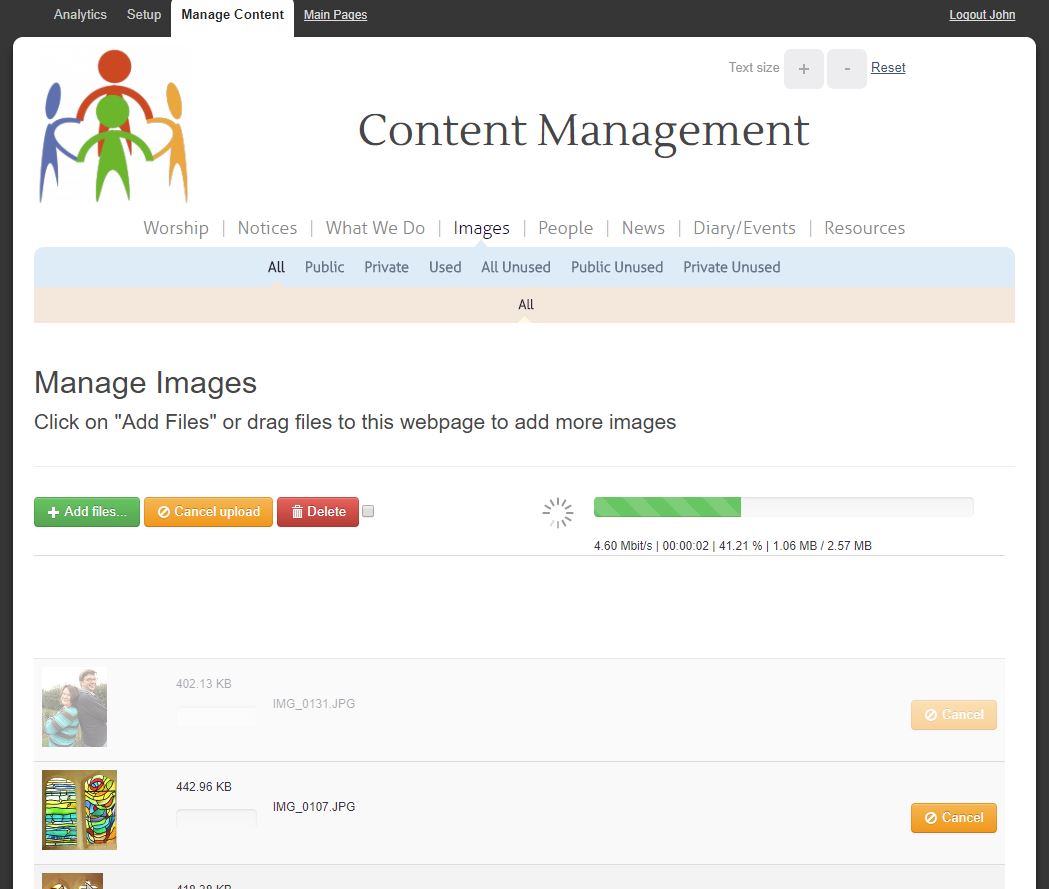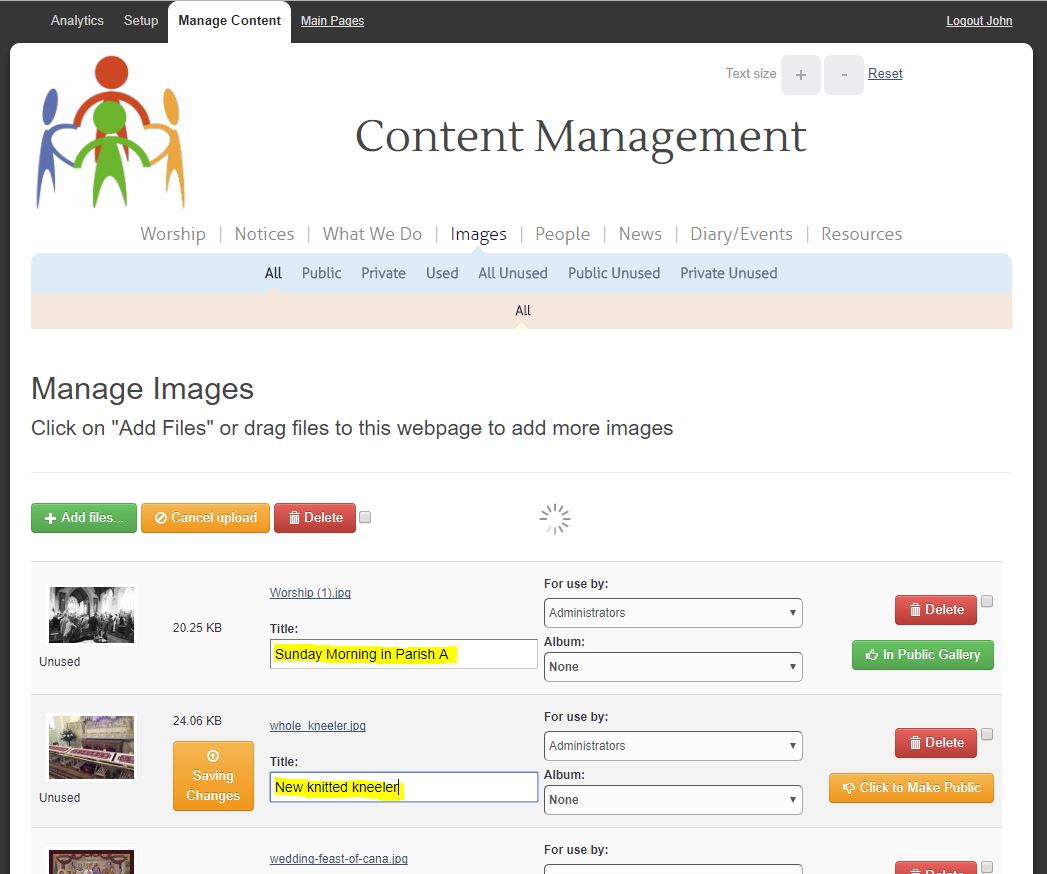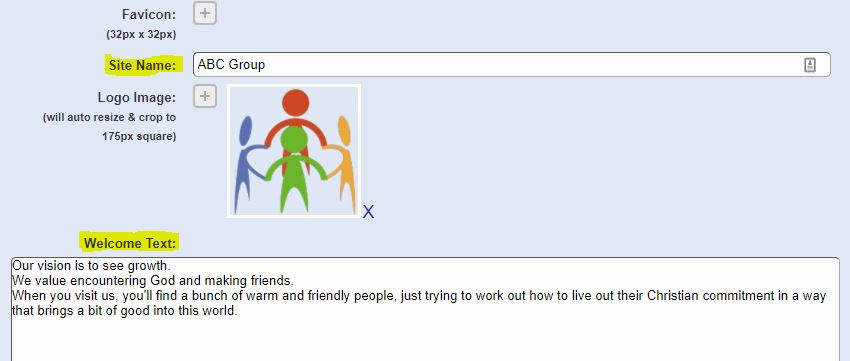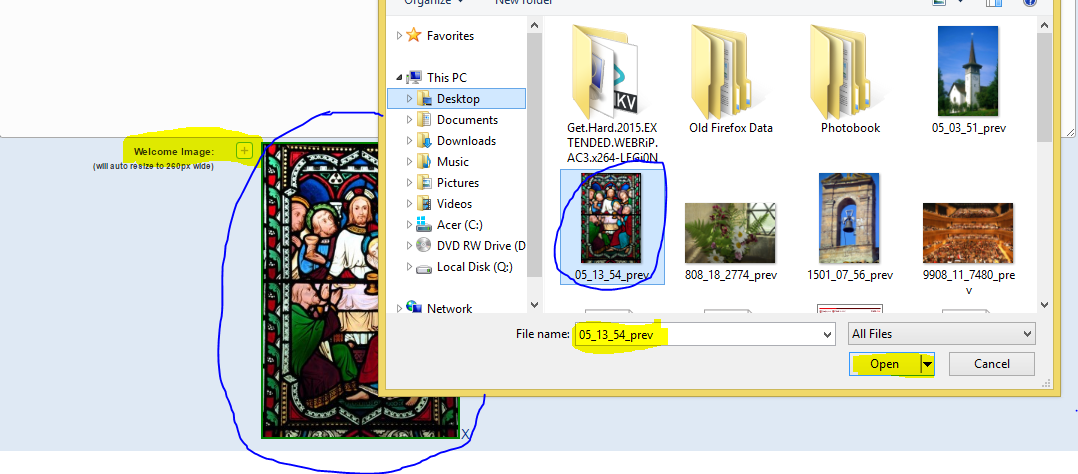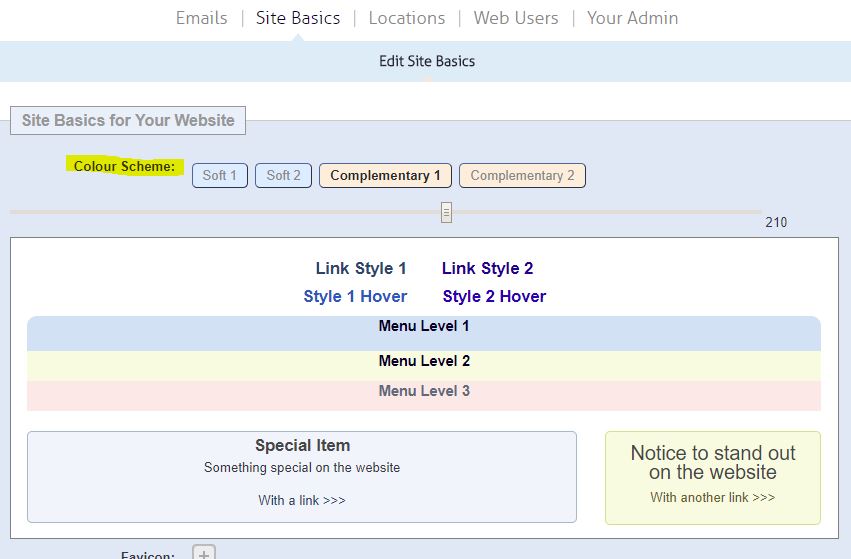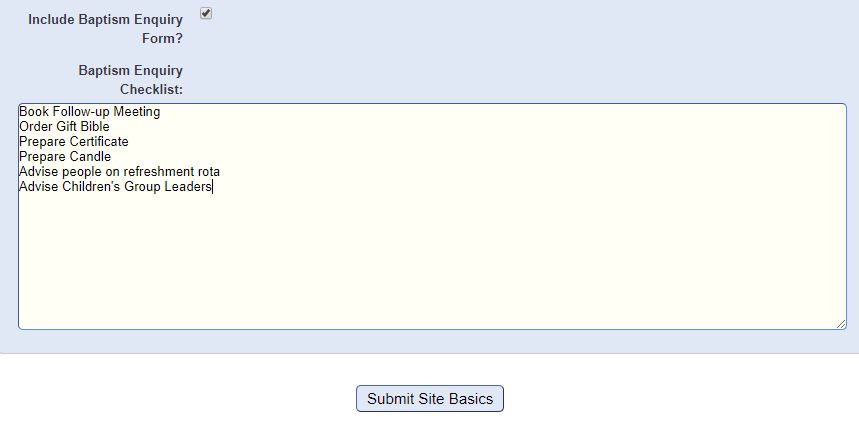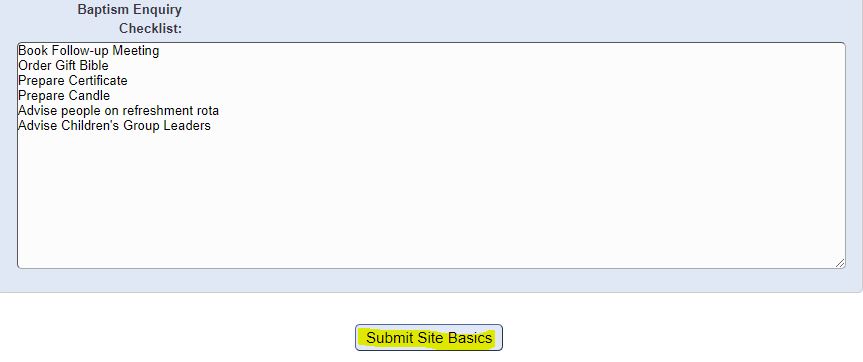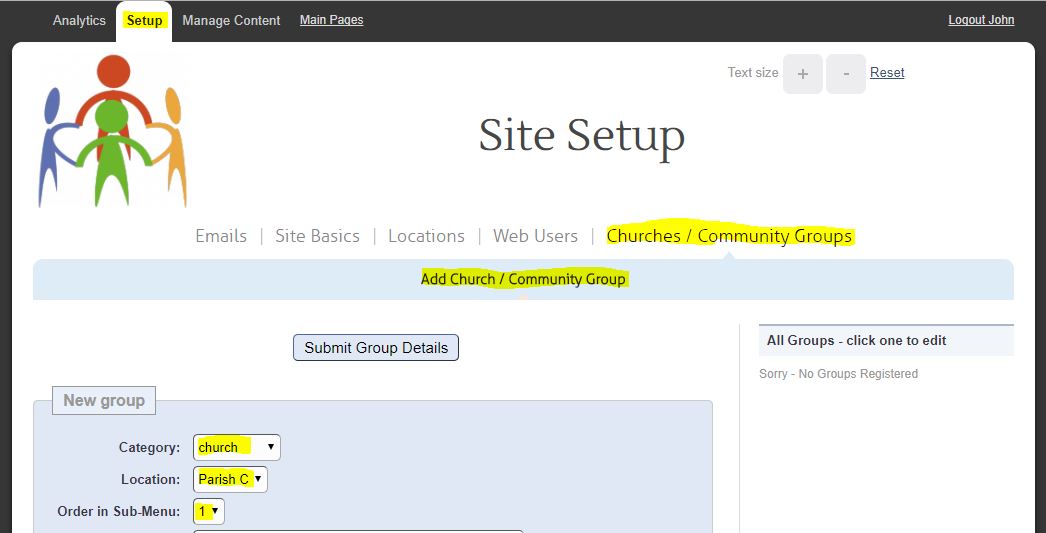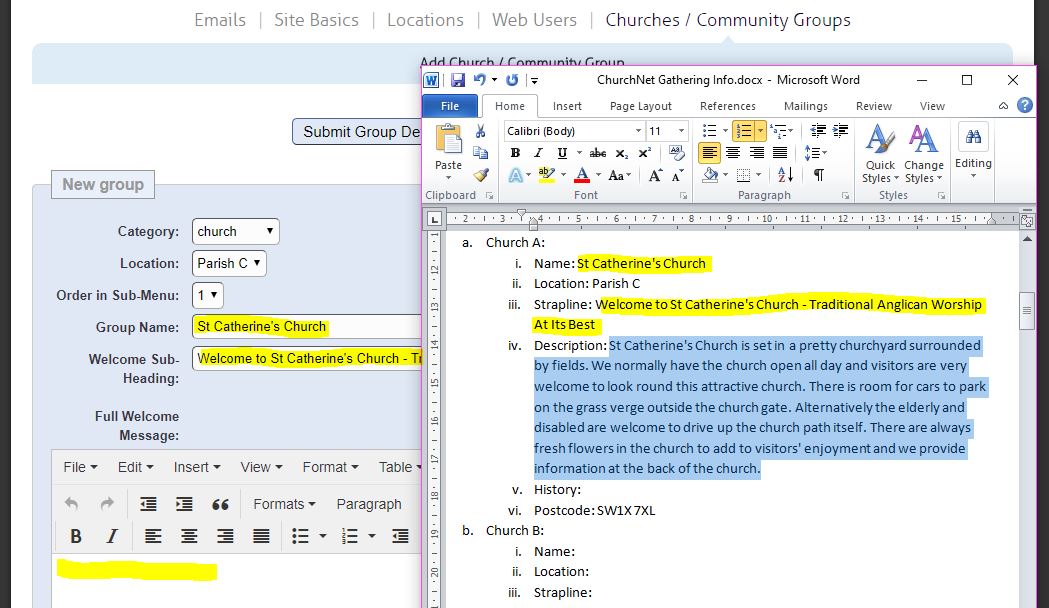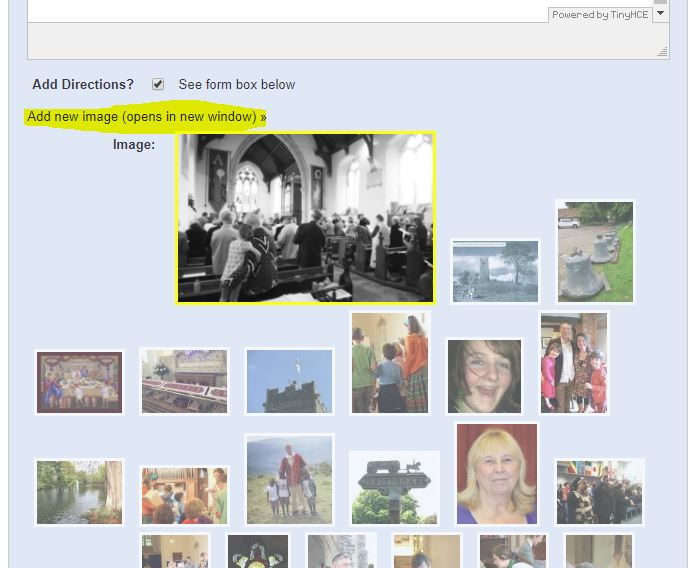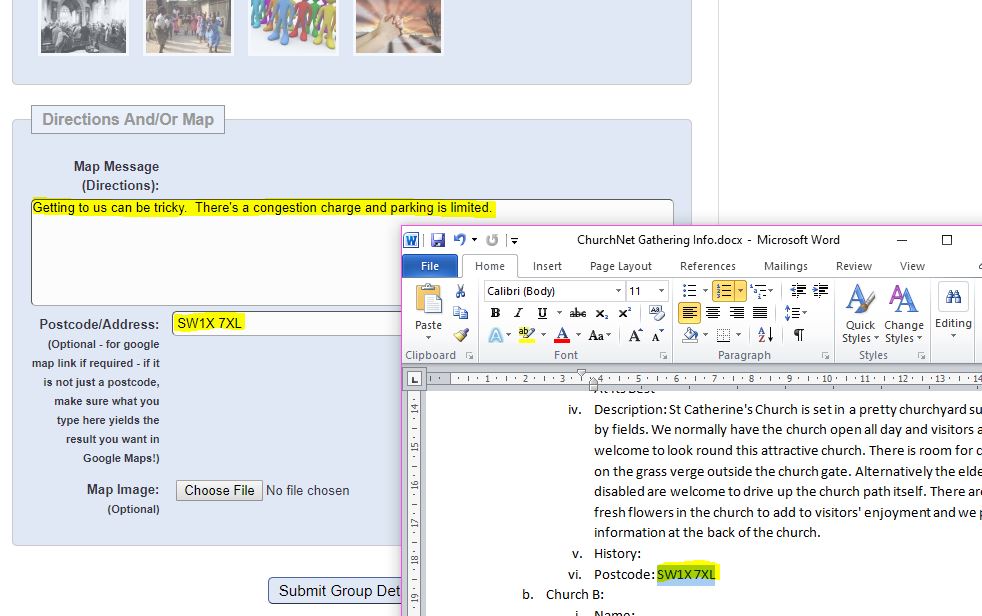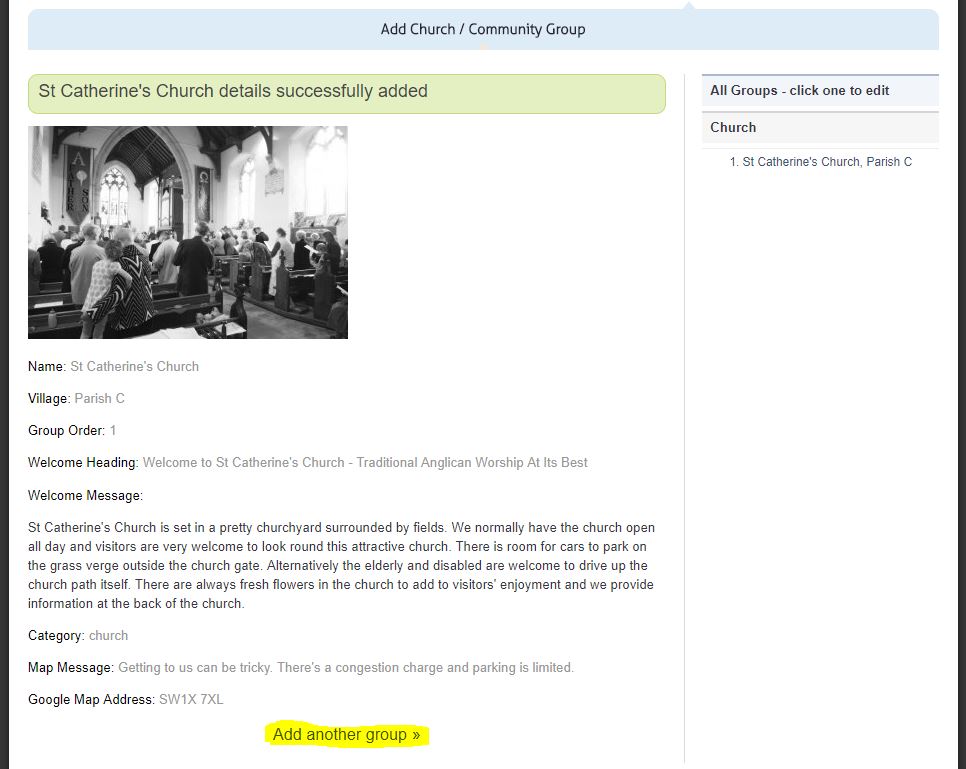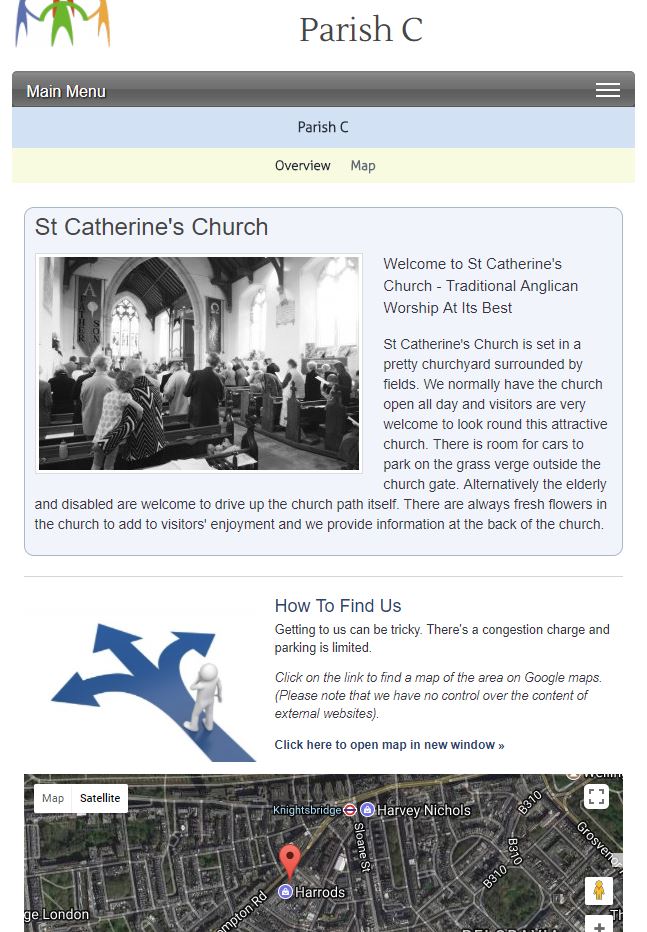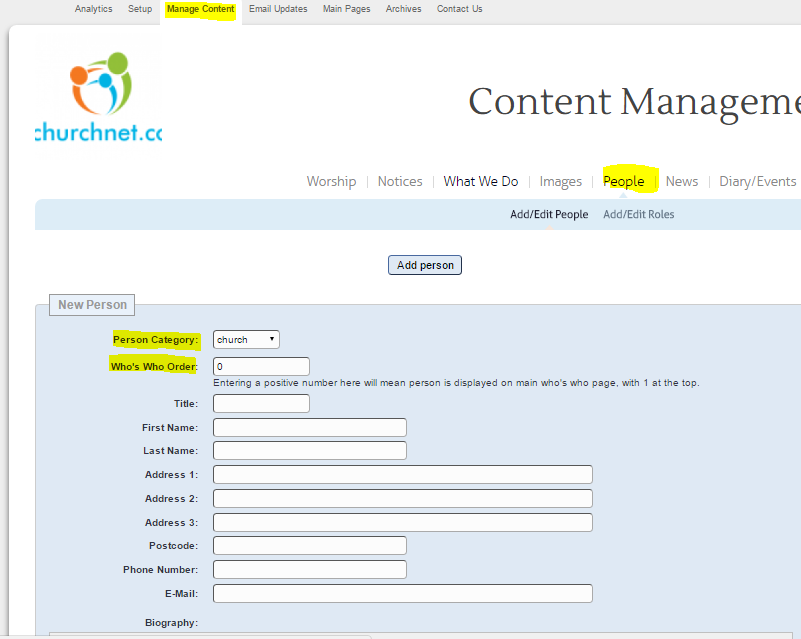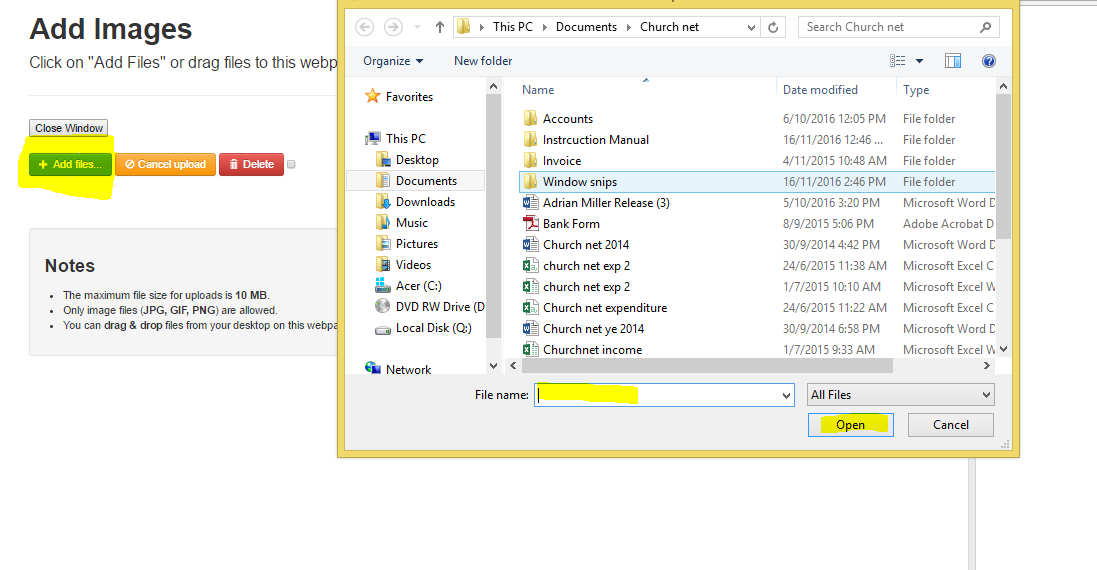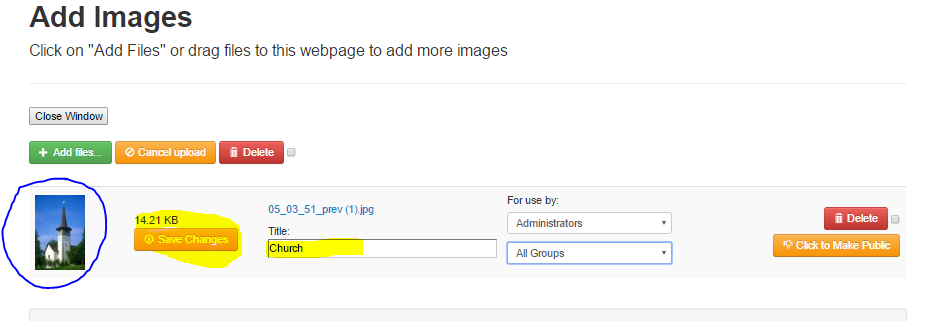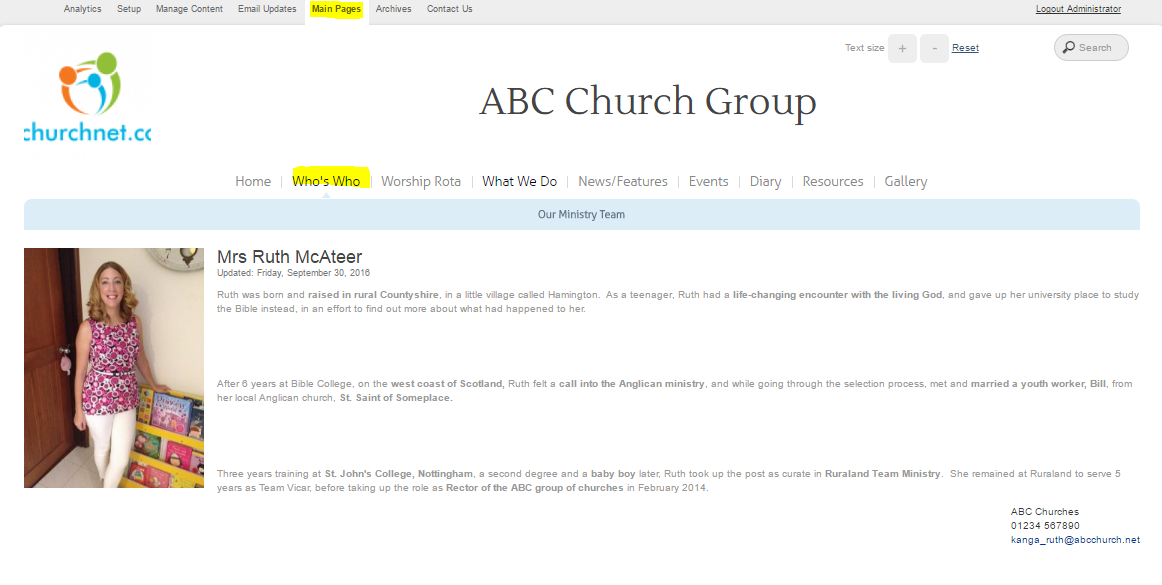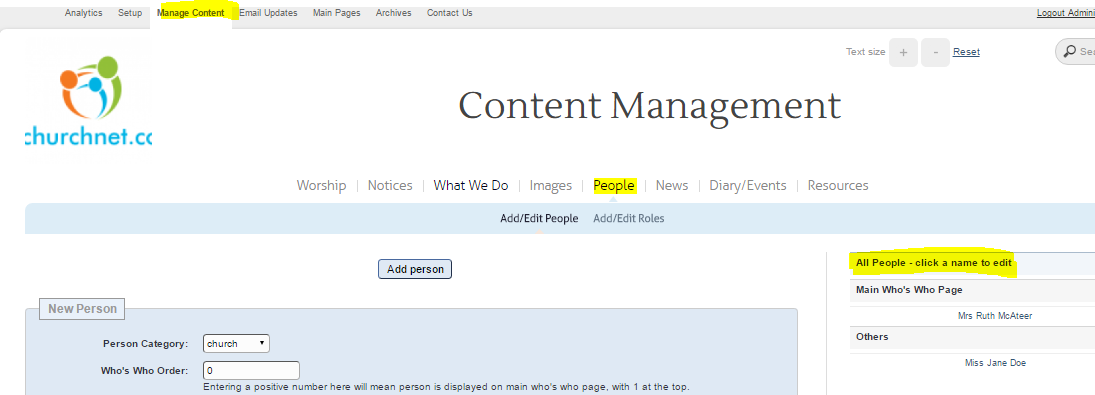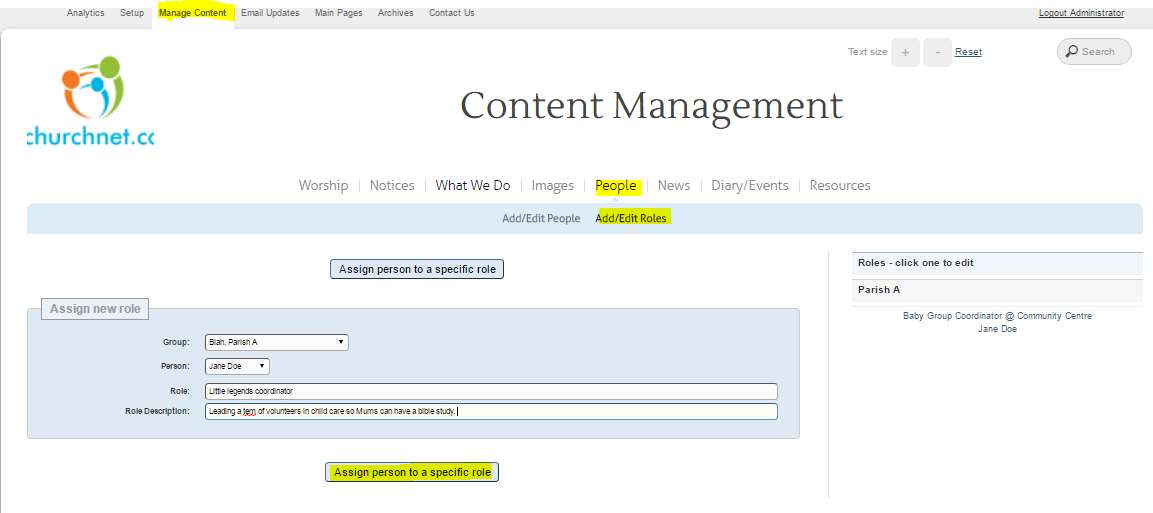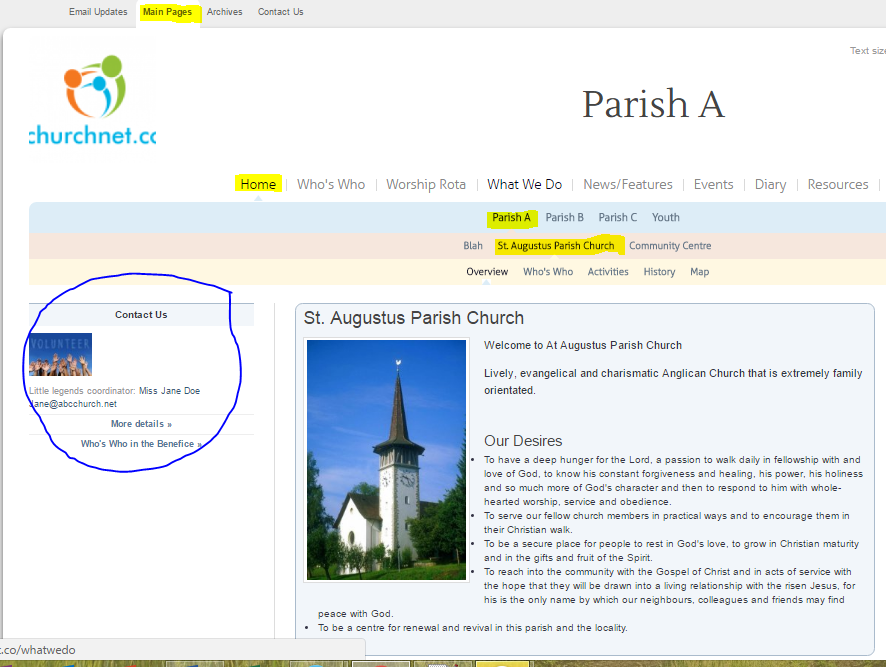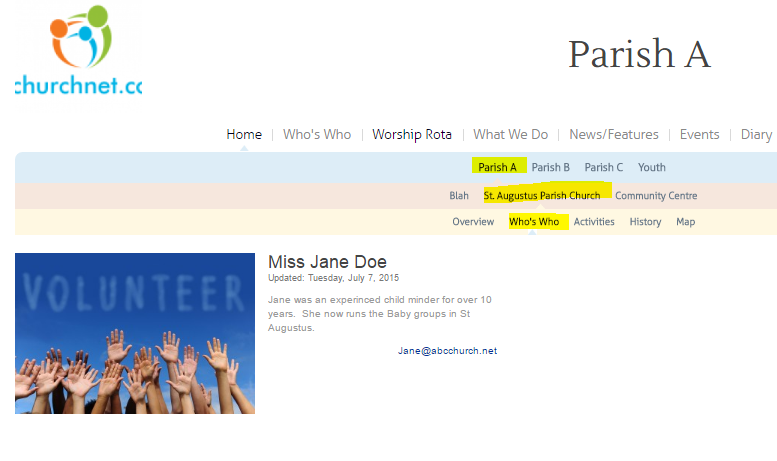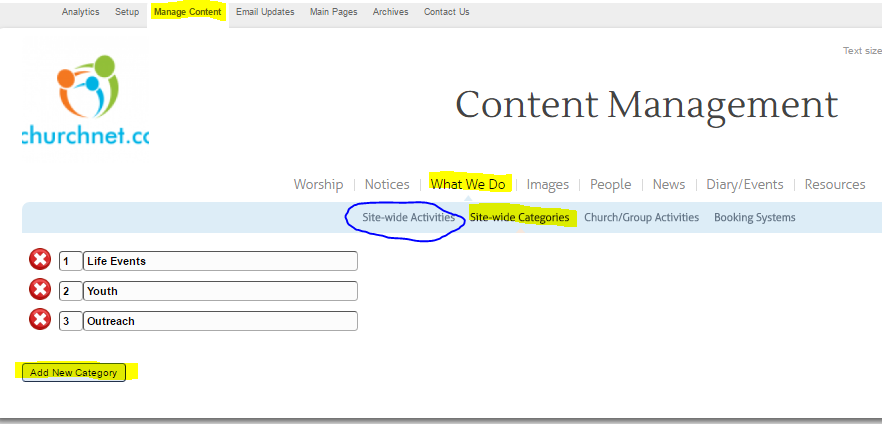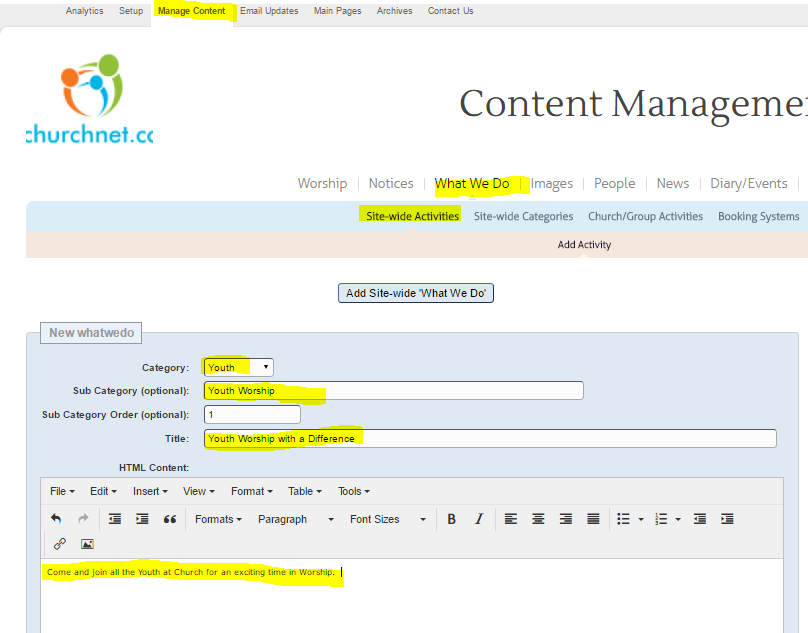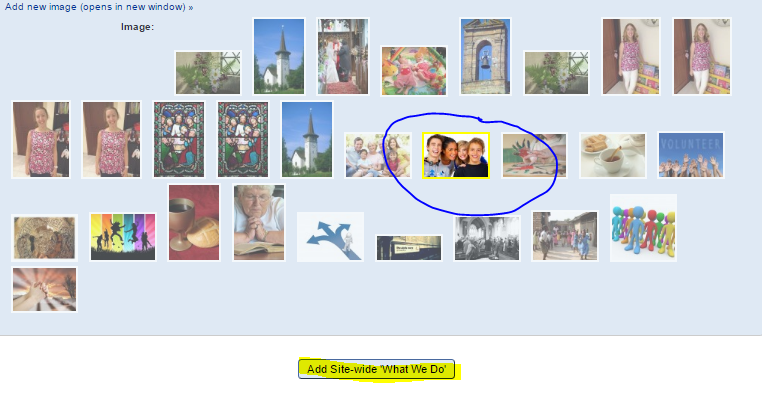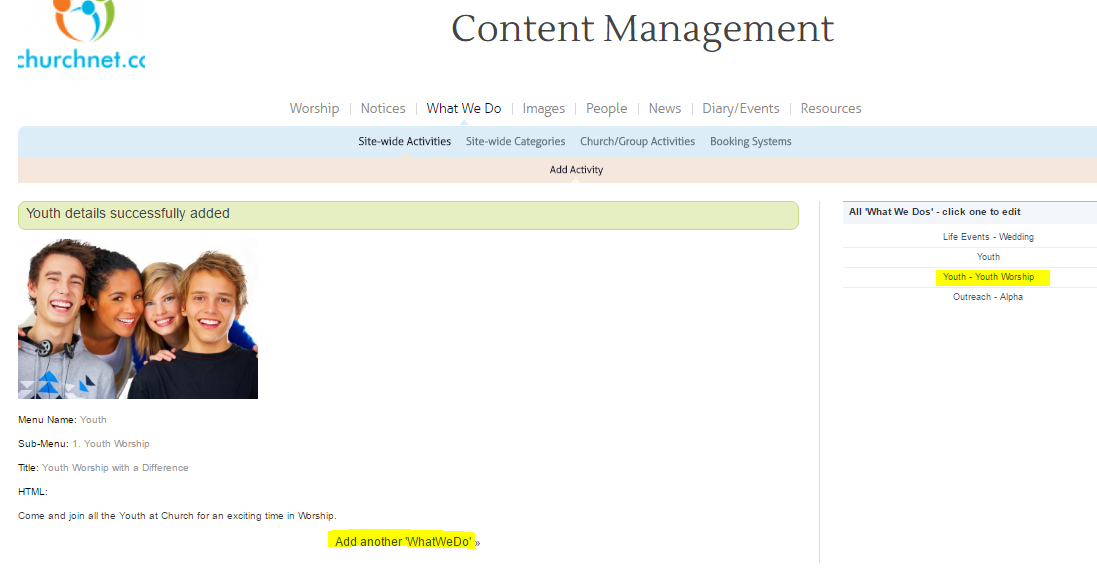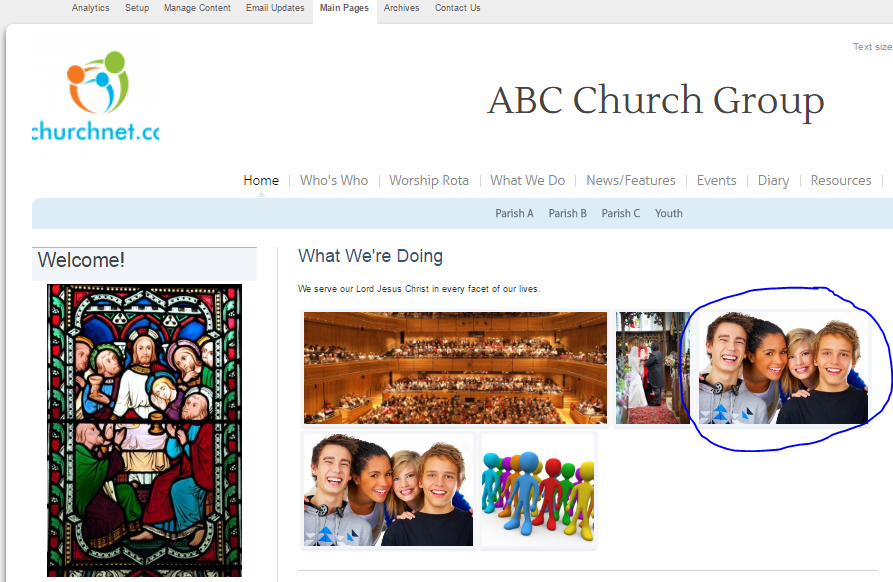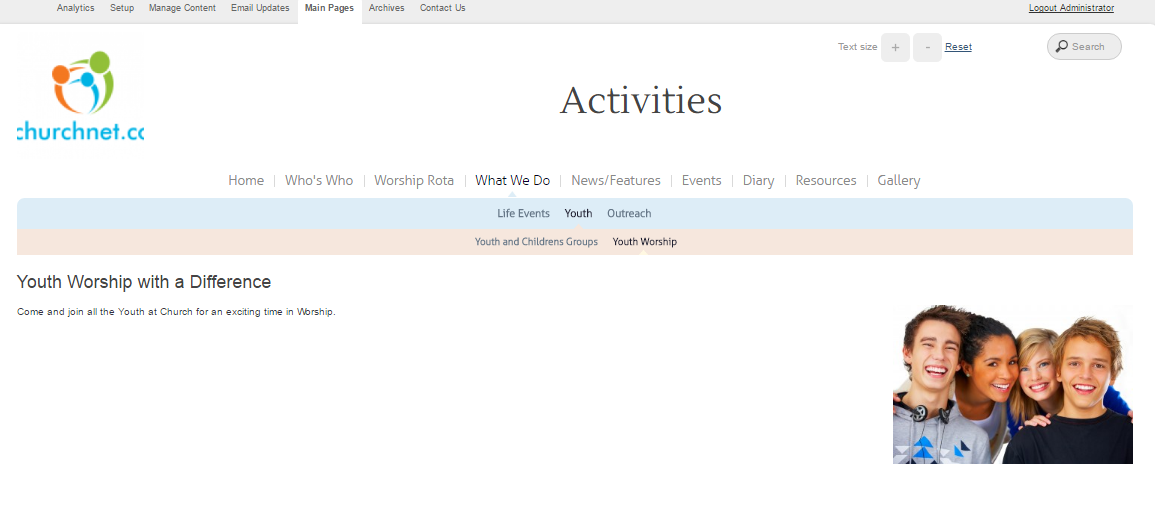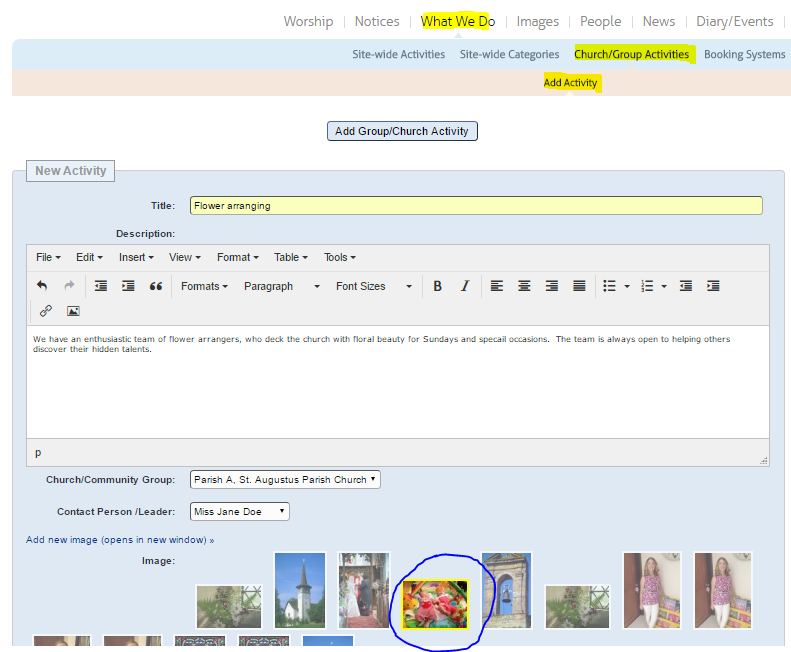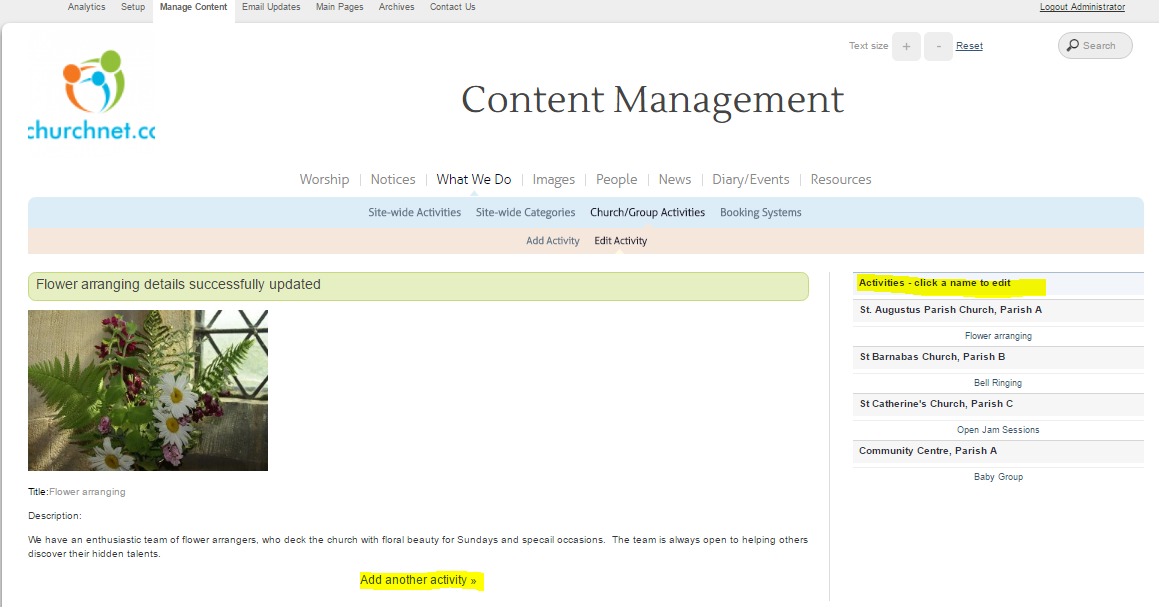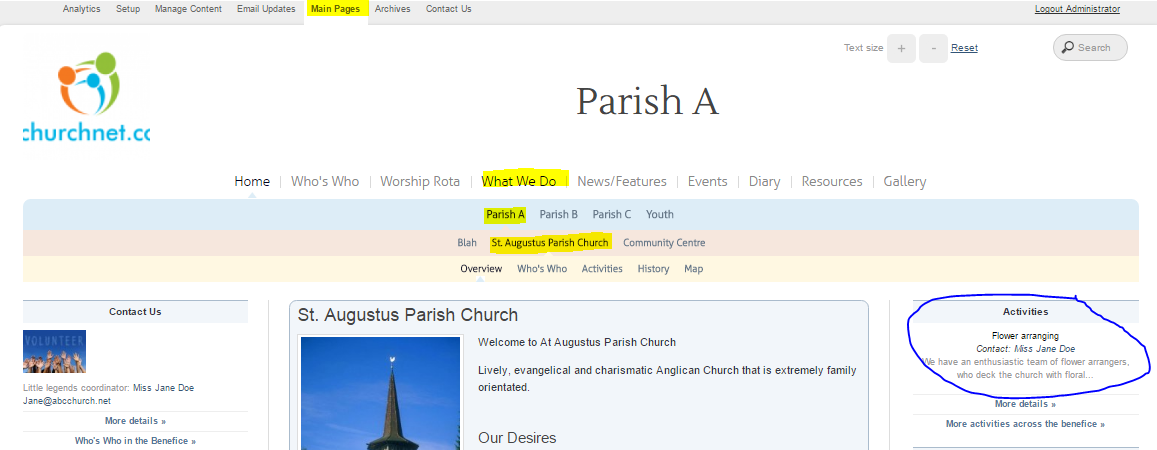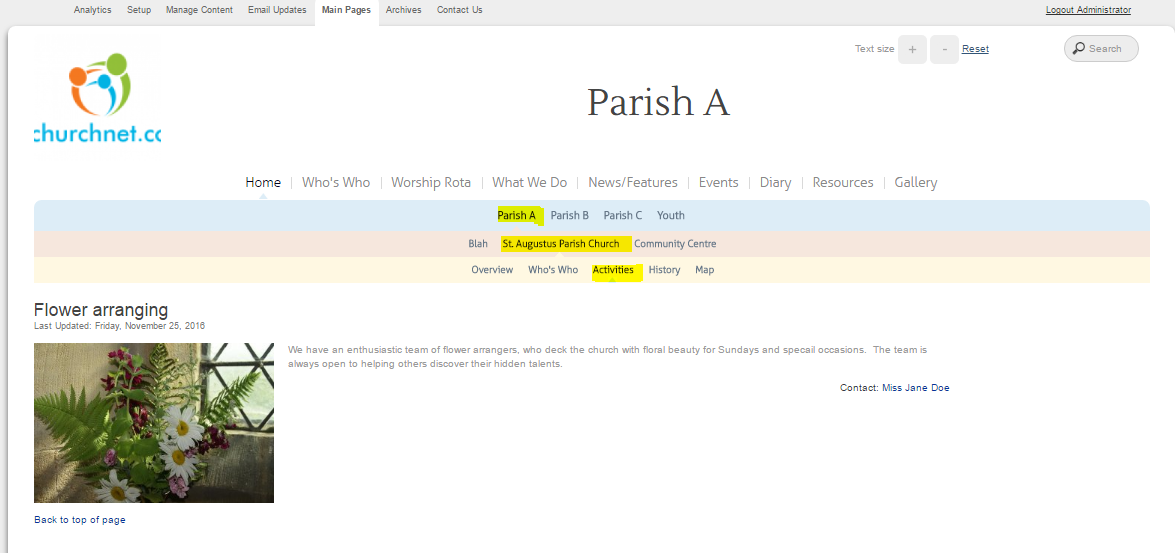Checklist
After working through the previous section of the guide on gathering information, you will have compiled a number of images and text ready to copy and paste into place, as you work through this section of the guide. Before you begin, check you have the following:
Images for all sections of your website, including logo and favicon
Your Site Basics
A list of locations
Details for key Churches in each location
Details for key Community Groups in each location
Details for key people
Roles for key people in each church or community group
Details for key activities
A list of people who will be maintaining the content on the website
A regular service pattern
A list of email addresses, with associated passwords, to transfer or create
Click here to download a Word Document, to help with information gathering
1. Secure Your Site
To make your site secure, you'll need to add at least one new administrator, and then delete the default administrator.
Simply follow the steps below, by clicking on the numbers or the arrows at the top of the box.
2. Images
You should have prepared a folder on your PC, full of lovely images of smiling people and all that you want to show visitors to your website. Getting those images uploaded at the outset, in one block, will help ease the rest of the process of setting up your site.
NB There are FOUR special images, which you have to upload in a different way, described in the next section. These are the logo, favicon, welcome image and worship image. You might want to put images that belong to these categories in a separate folder on your PC.
3. Entering site basics
There is some basic information you need to frame your new website. Simply follow the steps below to get the ball rolling.
Note that steps 3-7 are all optional.
4. Inputting Locations
Under tab “Setup” click on tab “Locations".
For each location identified, click on the "Add New Location" button, and enter the location name.
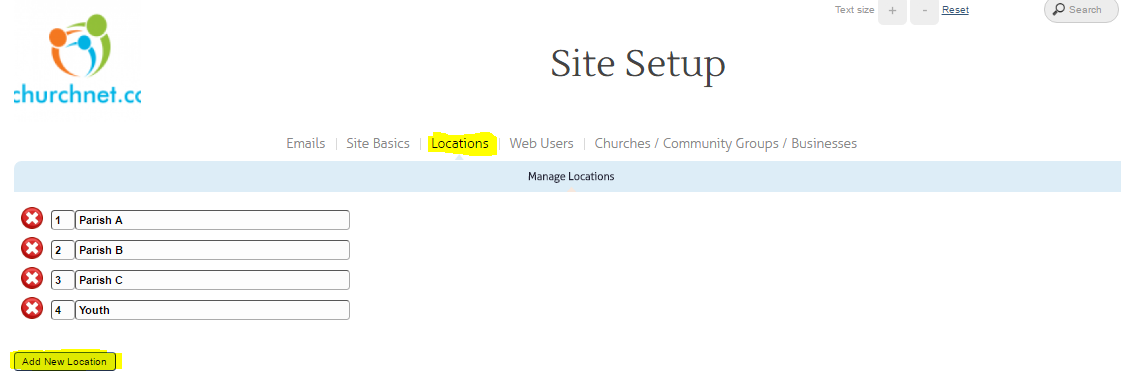
5. Inputting Churches & Community Groups
Now we get into the meat of the build - adding all your churches and community groups, so each one has their own home page.
The process of adding details is identical for churches and community groups. Just follow the steps below.
6. Who's Who?
Inputting details for members of your core team to appear on the Who's Who home page for your group.
7. Who Does What?
Assigning people who only have roles in a specific church or group in a specific location to appear in the home page for that church or group.
8. What We Do
Global Activities
Creating pages for Church actvities such as Weddings, Youth and Outreach.
Localised Activities
Creating pages for actvities associated with a particular church or group, such as bell ringing or flower arranging.
9. Add More Website Content Managers
If you have more than one web user, who will be managing content on your site, you may as well add them now, while you're in the right place.
Go to Setup pages, and click on Web Users. The New user form will appear.
Enter a username and password of your choice. Make sure you select "admin" user level from the drop-down list. Enter the name you wish to be displayed when you login.
Finally click on Add Website user.
Repeat for all Administrators you need to add.
10. Regular Pattern of Worship
The regular pattern of worship will assist in populating your actual service rota, when it comes to keeping the content up-to-date.
Go to Setup pages, and click on Worship.
11. Emails
You can add individual and group email addresses, to be used with the ChurchNet mail server.
Go to Setup pages, and click on Emails.
CONGRATULATIONS!
You have now entered in all the basics to launch your new website.
Now you can move on to what you need to do to maintain the information for all your various churches and communities on your new online space!
Click here to proceed
